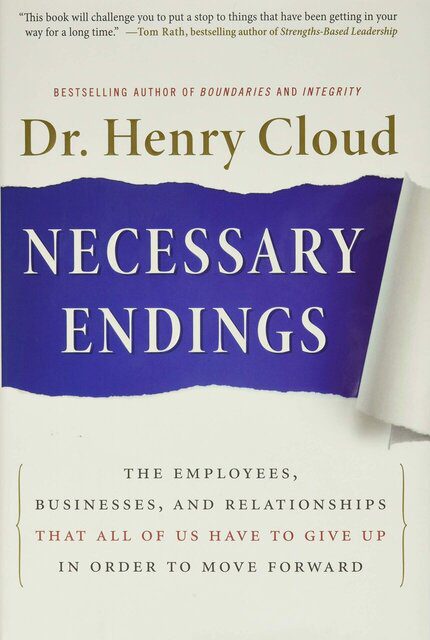Great is the art of the beginning, but greater is the art of the ending — Henry Wadsworth Longfellow.
In Necessary Endings: The Employees, Businesses, and Relationships That All of Us Have to Give Up in Order to Move Forward, Clinical Psychologist and New York Times bestselling author Dr. Henry Cloud shares mindset-altering methods for proactively correcting the bad and the brokenness in our businesses and our lives. Cloud challenges readers to achieve the personal and professional growth they both desire and deserve—and gives crucial insight on how to make those tough decisions that are standing in the way of a more successful business and, ultimately, a better life.
